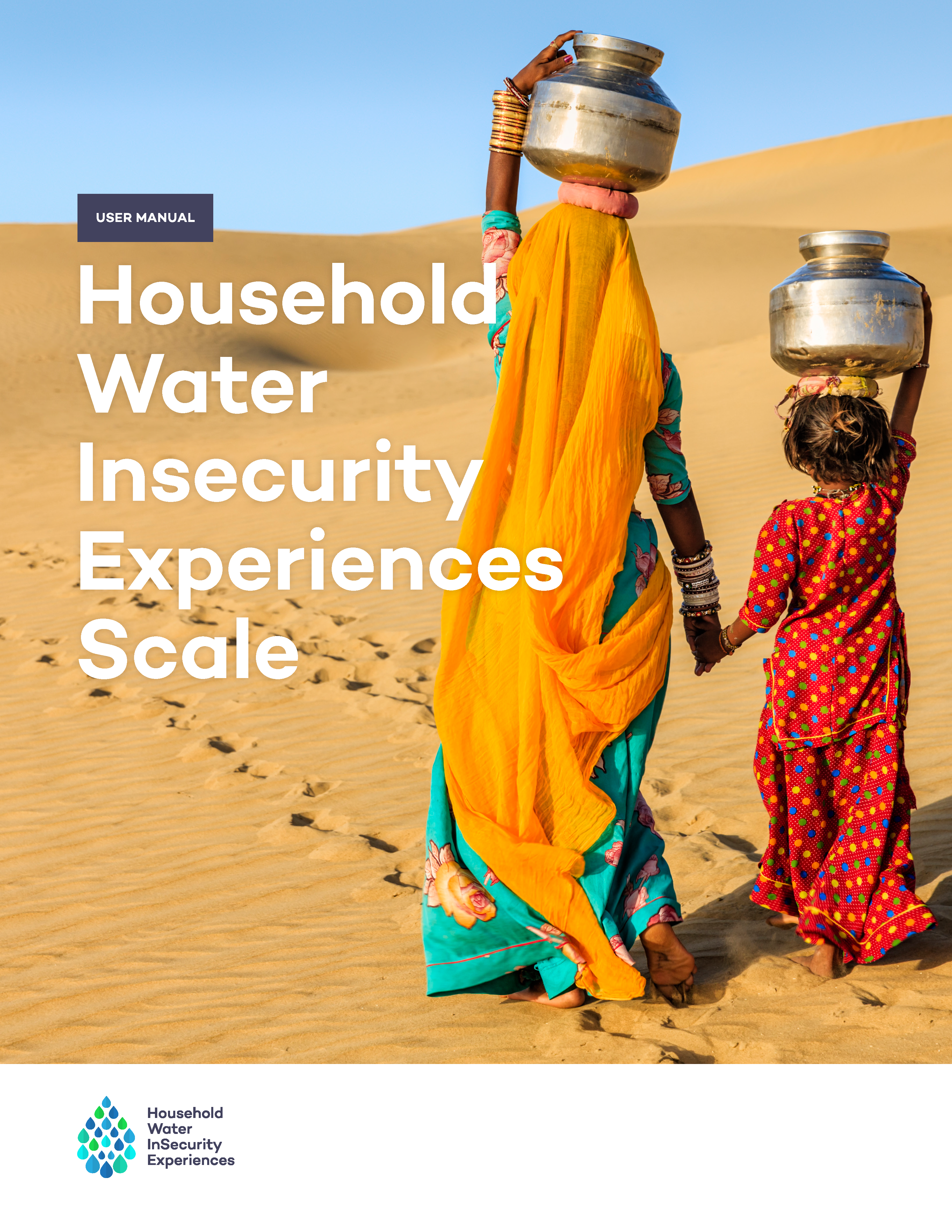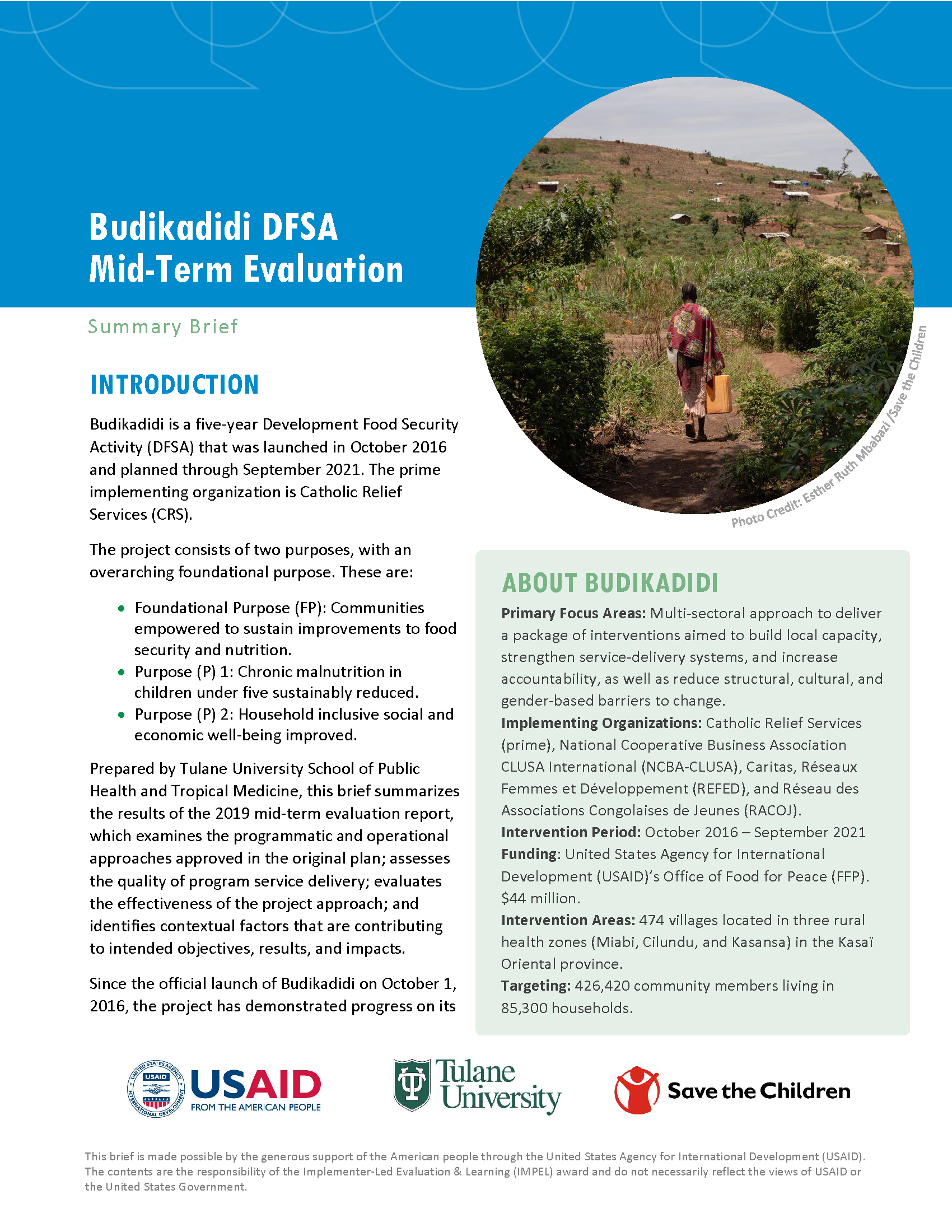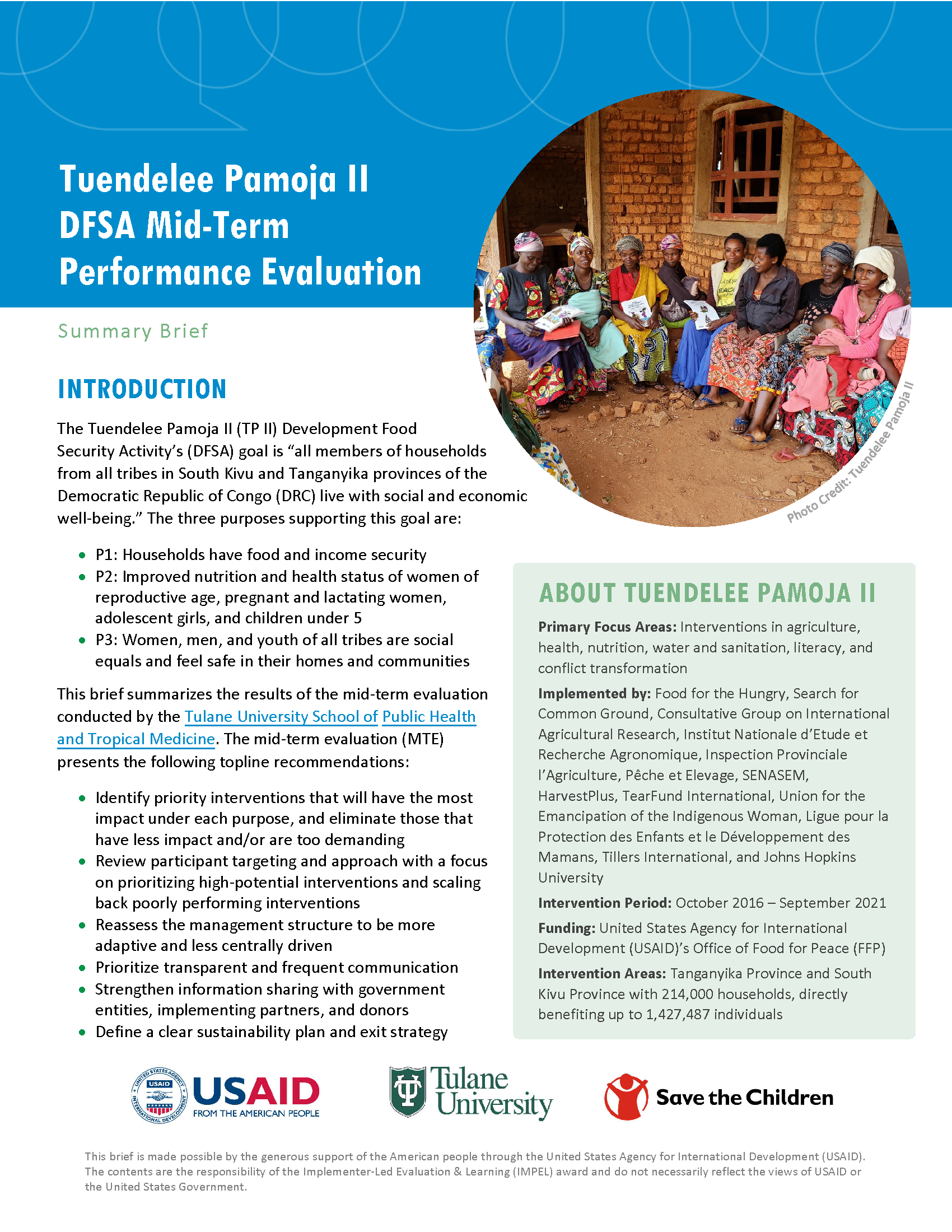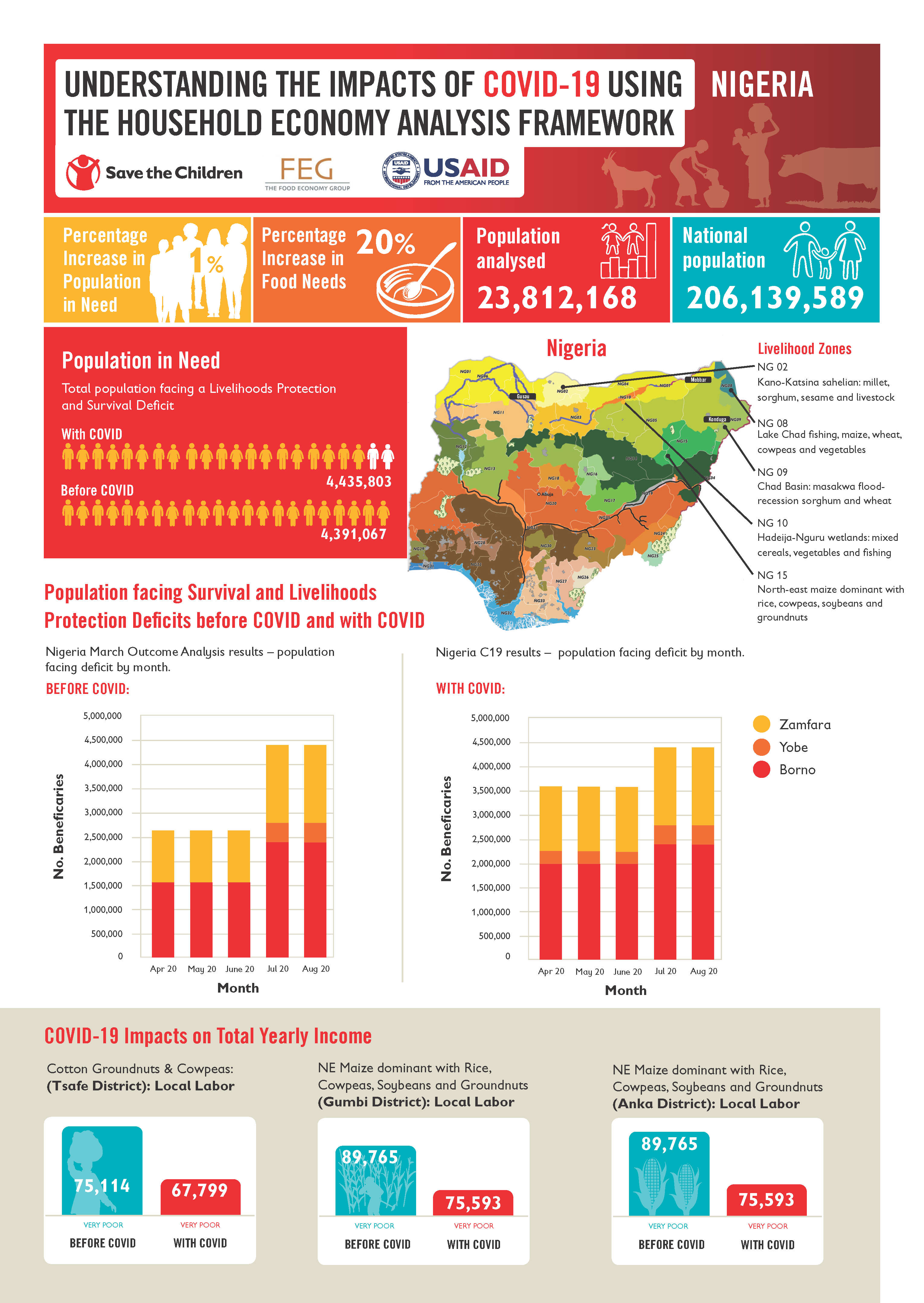Search Results
WASH Online Trainings
WASH Online Trainings PRO-WASH actively curates online trainings to assist the global WASH community. All courses are free of cost unless otherwise specified. If you have additional trainings you think would be useful for the WASH community, please send them to us at prowash@savechildren.org. General WASH Introduction to Water, Sanitation, and Hygiene (WASH) >> Provider: UNICEF Languages: English In this 30-minute online course learn the purpose and importance of water, sanitation, and hygiene (WASH) programs. This course was designed for UNICEF staff and is valuable for any humanitarian and development worker at all levels to learn the basics about WASH
User Guide: Household Water Insecurity Experiences
Authors:
Household Water Insecurity Experiences (HWISE)
Sector Type:
Water, Sanitation, and Hygiene
Year Published:
2020

Budikadidi DFSA Mid-Term Evaluation Brief
Authors:
IMPEL
Sector Type:
Monitoring and Evaluation |
Evaluation |
Agriculture and Livelihoods
Year Published:
2020

Tuendelee Pamoja II DFSA Mid-Term Performance Evaluation Brief
Authors:
IMPEL
Sector Type:
Agriculture and Livelihoods |
Monitoring and Evaluation |
Evaluation
Year Published:
2020
Malawi's First Dietetics Program: Lessons from a Multi-Pronged Approach to Building Human and Institutional Capacity for Nutrition
In the face of the growing double burden of malnutrition in Africa, Malawi became one of a handful of countries in sub-Saharan Africa to develop and implement its own dietetics program, with support from the Feed the Future Innovation Lab for Nutrition and USAID Malawi. The multi-faceted role that registered dietitians play in improving quality of life through multidisciplinary clinical nutrition care, nutrition programming and policy engagement, in communities and hospitals, is recognized globally. Yet, more than 60% of African countries do not have dietetics training programs, consequently leading to a severe shortage of dietitians in health service delivery. JoinEl Estado Global de los Programas de Transferencias Monetarias 2020
CaLP publicó la primera edición del Informe Global Sobre el Estado de los Programas de Transferencias Monetarias en febrero 2018. El objetivo de esta segunda edición es proveer un análisis actualizado, neutro y preciso de los programas de transferencias monetarias (PTM) humanitarios, así como sobre los avances en los objetivos colectivos para aumentar la escala y la calidad de los PTM. El informe examina los progresos, cambios y desafíos en el uso de los PTM, en el transcurso de los últimos dos años y medio, en contextos que suelen cambiar rápidamente en el mundo humanitario. El informe incluye percepciones de
Understanding the Impacts of COVID-19 Using the Household Economy Analysis Framework
Authors:
Save the Children
Sector Type:
Agriculture and Livelihoods |
Emergency Response
Year Published:
2020